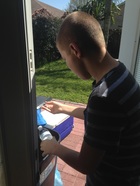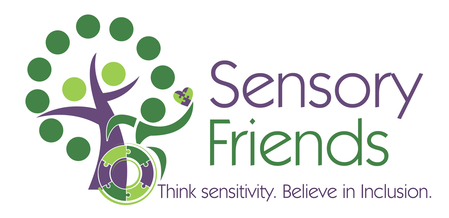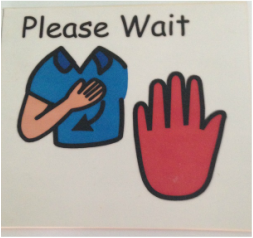Putting the Positive Behavior Support Plan in Place
- This is a lengthy process that doesn’t happen overnight. Try to be patient and take one step and day at a time. Try not to do everything on your own, in the plan we should have assigned tasks to all members of the team. Please note it’s okay if this can’t be helped and you are the only one doing the work (this happened to me). Pace yourself and try not to get stressed out.
- No steps can be missed. Please don’t think it’s okay to skip a part of the process. Each and every step of the way is equally important to solving and managing challenging behavior. The only exception is if you need to utilize your crisis plan for dealing with intense and potentially dangerous situations.
- Collaboration is key. The school team members came up with great strategies for improving Richie’s behavior at school. But implementing the plan at home was another story. Try not to become discouraged when other team members aren’t as active (whether it’s with brainstorming ideas, collecting data, implementing the strategies, or managing the plan). You keep doing what’s right for your loved one and carry on with your plan.
- Never underestimate your child's learning potential. This process helped me to unlock creative ways to teach Richie new skills. Now, my husband and I think of creative and new ways to teach Richie things, or expand on some of the skills he has. We went from assuming Richie wanted his own “space,” to “How can we get Richie to do or participate in this?”
- My son and others like him have thoughts, feelings, and the desire to interact with others – despite what we may have believed or thought in the past.
- Richie is fourteen and 8 pm may have been too early a time for getting ready for bed (he gets up at 8:30 am to be in school by 9:30 am).
- He probably didn’t think he would get the iPad back after it was taken away for washing up. Incidentally, it wouldn't be given back to him after hitting and pinching me.
- He was just being a typical teenage boy who thinks washing up is a waste of time and interrupts the activity he prefers to do.
- We figured Richie could stay up until 9:30 pm, but we would make sure to make him aware of how much time he had left to play. Using a digital/visual timer was very instrumental for this.
- Using a visual schedule that let him know exactly what would happen next made things easier. The iPad would be difficult to get him to go to sleep, so we created a new routine. A dvd player that was timed to go off in two hours is a great idea that has worked. The movie Shrek (one of his favorites) would play only on the DVD player (it’s not on his iPad) when it was time for bed.
- Having his CD player playing his favorite songs in the bathroom (again only during this time) was another idea that made things go smoother. Richie now looks forward to his shower, and after he brushes his teeth, he asks for Shrek.
We started with:

Laundry – Richie could carry his hamper downstairs from his room and into the laundry room. He could load the washer. He could also move the clothes from the washer to the dryer.
The creative ideas continue to flow, but the improvement in Richie’s behavior was paramount. We saw his aggressive behaviors decrease from seeing intense aggressive behaviors throughout the day to practically no incidents at all. I was now able to drive with Richie in the front seat of the car, I had not been able to do this before. I was laughing and playing with my son. I was learning about who he really is and what a fun personality he has. He likes to joke and play. Richie was happy, in a good mood and always smiling. All this time I had perceived him to be a serious person. I couldn’t have been more wrong. I was meeting my son for the first time, and it brought me to tears thinking about how much time I had wasted with so many wrong assumptions. I still have to forgive myself for that, but for now we are thrilled with the small successes, and we know we'll see more growth and improvement. There is still work for us to do. But behind that work, we now know that there's promise, hope, and Richie's future to look forward to.
Part 7: Managing the Positive Behavior Support Plan













 RSS Feed
RSS Feed